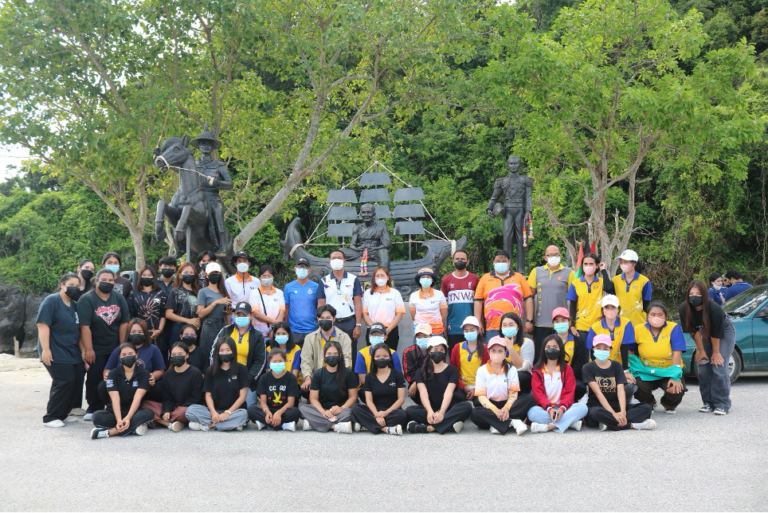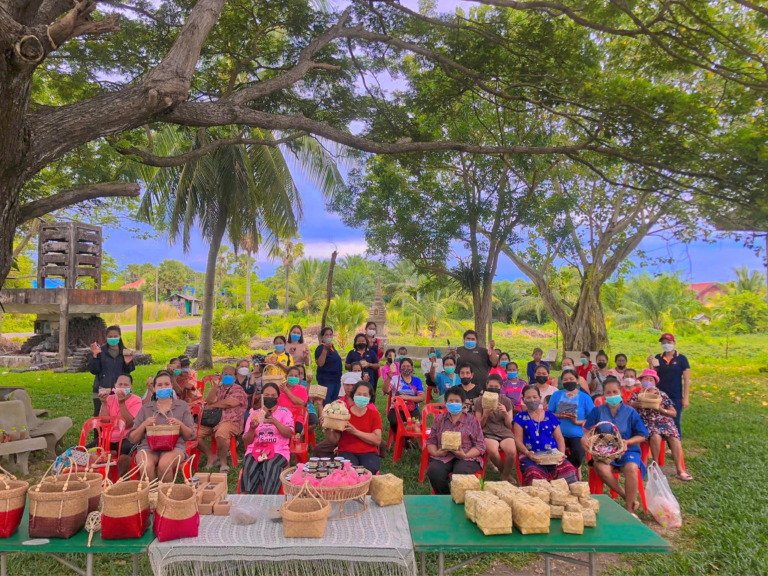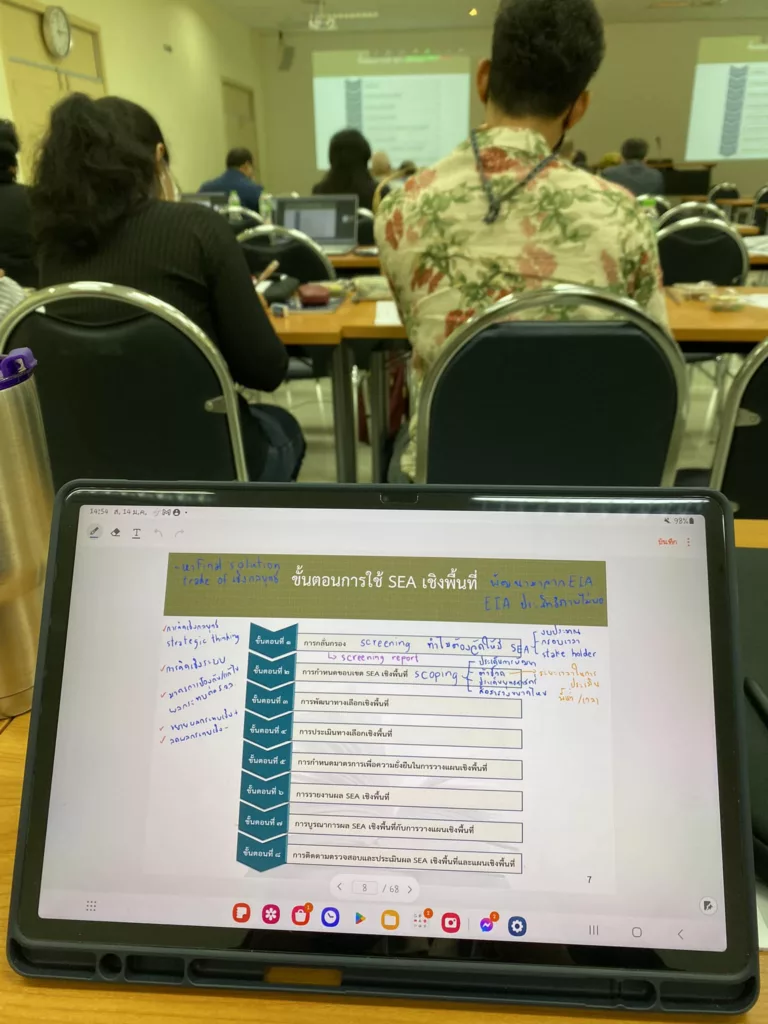Reporters : Dr. Nathathai Krebs, Dr. Chanyut Sudtongkong, Miss. Hathaitip Tongdoung
Indicator : 14.2.3
Date : November 22, 2022
Related SDGs:
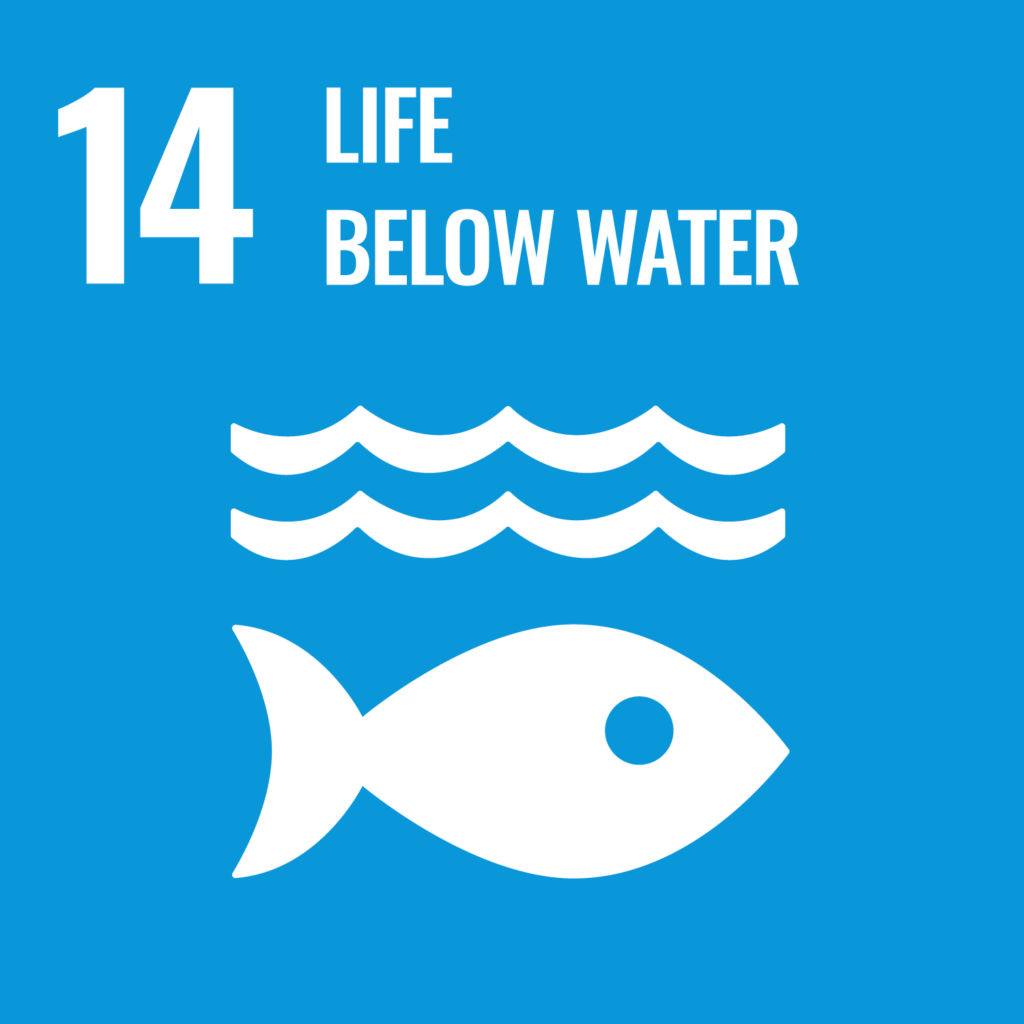
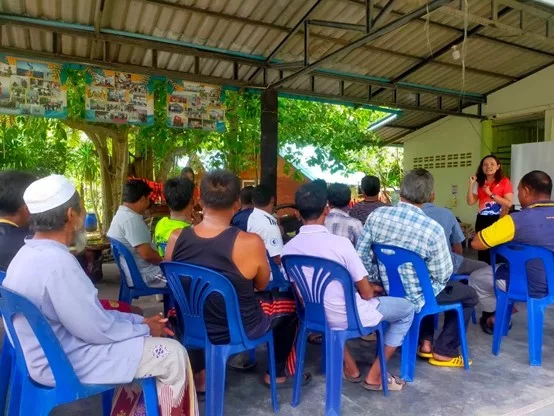
Rajamangala University of Technology Srivijaya (RUTS) is committed to educating local communities about overfishing, illegal, unreported, and unregulated fishing (IUU), and destructive fishing practices through participatory research project. This project is essential for raising awareness of these critical issues and engaging fishers in developing and implementing sustainable fishing practices.
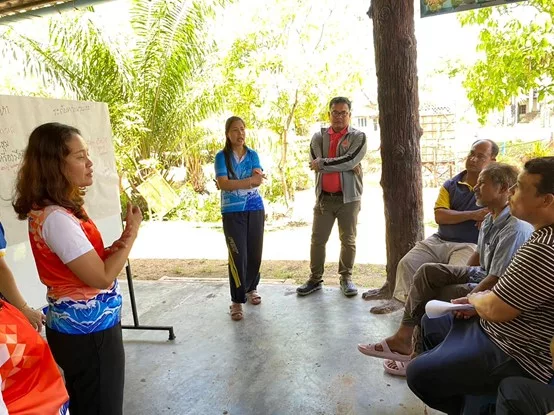
The main problems of coastal communities in Trang Province, Thailand are low income, illegal fishing gear use, declining fish stocks, degraded seagrass beds, and aquaculture problems. RUTS staff’s work in this area is an important contribution to the field of fisheries management. It demonstrates how universities and research institutions can play a vital role in promoting sustainable fishing practices by engaging local communities in the research process.
Dr. Nathathai Krebs (a RUTS lecturer) and her staffs were working on the research project, whose title is “Empowering Trang Coastal Communities for Responsible Fisheries Management”. The objective of this study was to develop the learning opportunities to enable coastal communities in Trang Province, Thailand, to become smart fishermen and to implement participatory management for sustainable resource use.
The study targeted 10 community fishery organizations that were registered with the Department of Fisheries and/or the Department of Marine and Coastal Resources. The target population consisted of stakeholders involved in coastal fisheries in Trang Province, including small-scale fishermen, fishery processing groups, fishery business operators, leaders and representatives of local community fishery organizations, and experts from relevant government and private agencies.
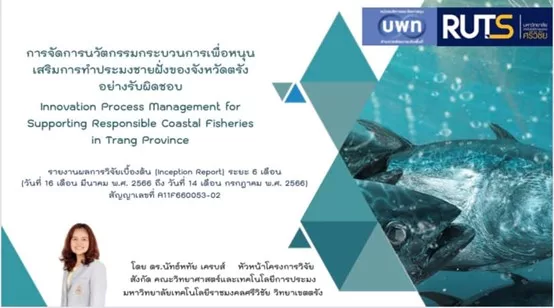

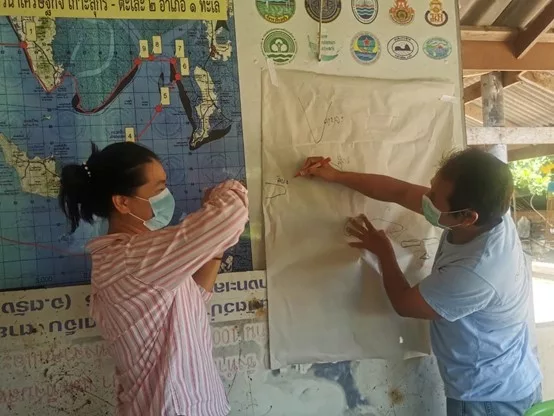
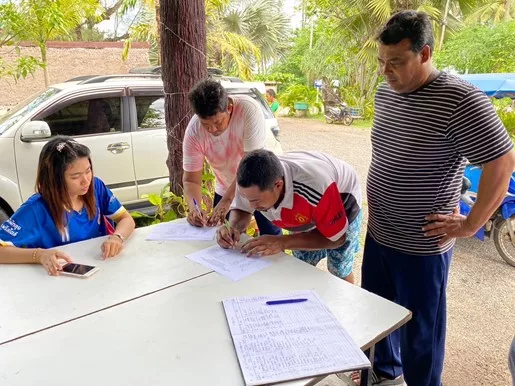
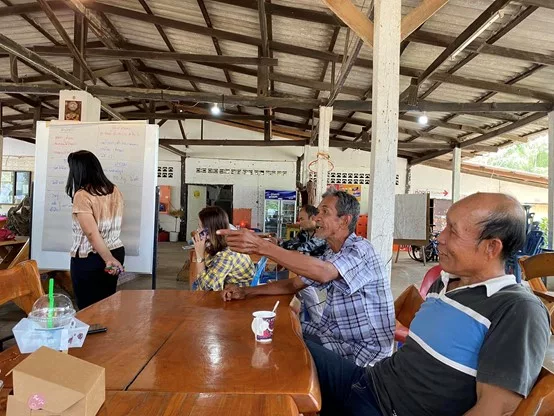
In this initial stage of the project is to develop a learning and innovation model (LIP), the objective is to create smart fishermen communities that are capable of sustainable resource utilization through participatory management. The learning areas are divided into five aspects, each with a specific focus:
– Crab Bank and seagrass: This aspect focuses on the restoration and management of blue crab and seagrass populations, which are important resources for coastal fisheries.
– Fisheries and environmental management: This aspect focuses on the sustainable management of fisheries resources and the environment.
– Aquaculture: This aspect focuses on the development of sustainable aquaculture practices.
– Seafood processing: This aspect focuses on the development of value-added seafood products.
– Sales and marketing: This aspect focuses on the development of effective marketing strategies for seafood products.
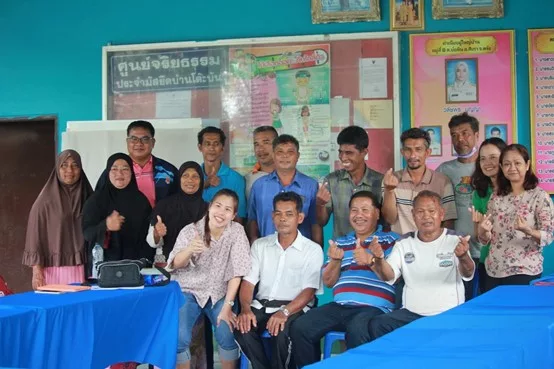
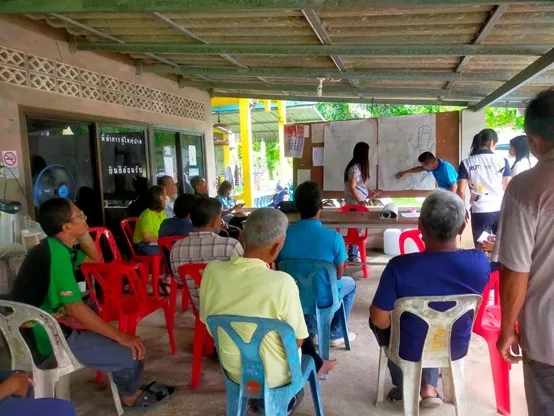
In summary, RUTS’s participatory research projects on IUU fishing, and destructive fishing practices have been successful in raising awareness of these issues among local communities and in promoting sustainable fishing practices.
Related Links:
https://www.facebook.com/profile.php?id=100093190931962
https://saveandamannetwork.org/%E0%B9%82%E0%B8%84%E0%B8%A3%E0%B8%87%E0%B8%
81%E0%B8%B2%E0%B8%A3%E0%B8%81%E0%B8%B2%E0%B8%A3%E0%B9%80%E0%B8%AA%E0%
B8%A3%E0%B8%B4%E0%B8%A1%E0%B8%9E%E0%B8%A5%E0%B8%B1%E0%B8%87%E0%B8%8A%E0%
https://www.facebook.com/photo/?fbid=108178142298550&set=pcb.108178428965188
https://www.facebook.com/photo?fbid=107382725711425&set=pcb.107383392378025

